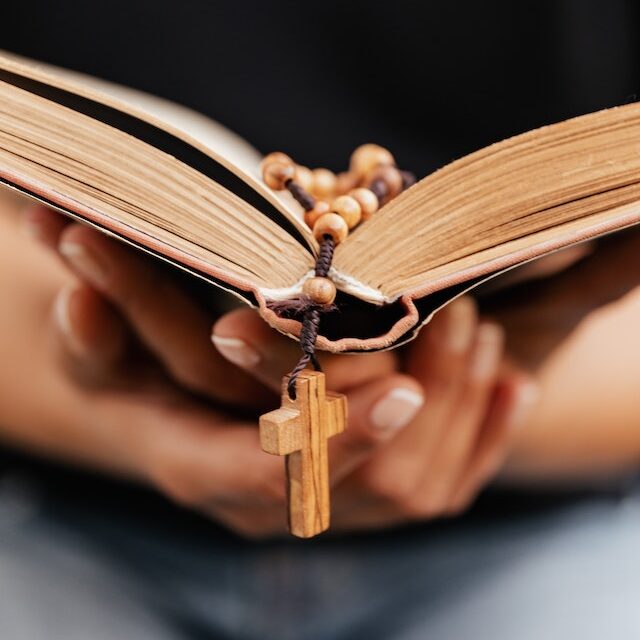About us
Lithuanian catholic education association

LKUA unites Catholic and Catholic educational institutions, communities and institutions operating in the territory of the Republic of Lithuania.
An institution is considered Catholic when it has the recognition of a competent Church authority according to the Canons of Canon Law. An institution is considered to be of a Catholic orientation when the institution's documents express approval of the teaching of the Catholic Church and this teaching is guided in its activities.
Objectives
The activities of the association objectives:
To unite
Catholic institutions, promoting mutual communication and cooperation and the dissemination of good practices;
To represent
and to defend the interests of Catholic institutions at the ecclesiastical and state, national and international levels;
to help
implement Catholic education by strengthening the identity of Catholic institutions.
Statutes
What are the statutes of LKUA?
I. GENERAL PART
I.1. The name of the association is Lithuanian Catholic Education Association.
I.2. The Lithuanian Catholic Education Association (hereinafter - the Association) unites Catholic and Catholic educational institutions, communities and institutions (hereinafter - Catholic institutions) operating in the territory of the Republic of Lithuania. An institution is considered Catholic when it has the recognition of a competent Church authority according to Canons of Canon Law. An institution is considered to be of a Catholic orientation when the institution's documents express approval of the teaching of the Catholic Church and this teaching is guided in its activities.

Structure
What is the structure of LKUA?
LKUA president
LKUA pirmininko pareigas nuo 2024 metų lapkričio mėn. eina VšĮ Šiaulių jėzuitų mokyklos direktorė Giedrė Statkutė.
LKUA members
LKUA unites Catholic and Catholic educational institutions, communities and institutions operating in the territory of the Republic of Lithuania.
LKUA administrator
Sandra Lukošiūtė
Members of the council
Members from the schools in which the founders and they are the catholic community or church authority:
- Gražina Gailiūnienė, Panevėžio Kazimiero Paltaroko gimnazijos direktorė
- Violeta Ališauskienė, Palaimintojo Teofiliaus Matulionio gimnazijos direktorė
- Saulius Andriuška, Marijonų gimnazijos direktorius
Members of the school founded by the state or the municipality:
- Erika Poškevičienė, Alytaus Šv. Benedikto gimnazijos direktorė
- Lauras Bartninkas, Kauno „Vyturio" gimnazijos direktorius
Members from high schools, colleges, professional schools and non-formal education institutions:
- Kun. Gytis Petras Stumbras, Šv. Ignaco Lojolos kolegijos kapelionas
- Kun. Vilius Sikorskas, Kauno Sakralinės muzikos mokyklos direktorius
A member of the pre-school educational institutions:
- Alma Petrunina, Panevėžys Kastyčio Ramanausko kindergarten director
History
How was LKUA formed?

After Independence 1990 Telšiai established the first catholic – Bishop Vincent Borisevičiaus high school, in 2002. at the end of the gymnasium status.
From 1991, when new Catholic schools were founded, they began to gather in the Society of Catholic Schools.
1992 the first conference of the Society of Lithuanian Catholic Schools in Kaunas - "The Idea of a Catholic School in Reviving Lithuania", during which an attempt is made to prepare the regulations of Catholic schools.
1993 general regulations of Catholic schools were adopted during the third conference of the Society of Catholic Schools. Lithuanians from the diaspora joined in helping Catholic schools. Especially great support was received from the religious aid of Lithuanian Catholics of America.
1995 Founding conference of the Association of Lithuanian Catholic Schools in Pažaislis (Kaunas). The elected chairman of the association - Fr. Gintaras Vitkus SJ and council members from each education department: dr.doc. Alfonsas Motūza, Ph.D. Ona Tijūnėlienė, Vytautas Rutkauskas, Nomeda Žemulienė, Pranė Malinauskaitė and Giedrė Rugevičiūtė. 272 pedagogues from 32 Catholic educational institutions became members of the association – the kindergarden of Kupiškis, Panevėžys kindergarten "Gintarėlis", Panevėžys kindergarten "Daisy", Panevezys the 13th century katalikiško kindergarten "Tree", " Vilnius "Žiburėlis" the beginning of school – kindergarten, Kaunas "Light" elementary school – kindergarten, Pakruojis katalikiško kindergarten "Bell", Utena primary school - kindergarten' Šiauliai catholic primary school, Vilniaus "Žiburio" the beginning of school-kindergarten, Kupiškis primary school, Kaunas elementary school - kindergarten "Light", Utena school - kindergarten "Bell", Kaišiadorys 1-osios vid. school of Vilnius jesuit gymnasium, Kaunas jesuit gymnasium, Kretinga catholic high school, Panevėžys K. Paltaroko catholic high school, the Panevėžys catholic girls ' agricultural school, Rietavo city catholic co-educational secondary school, Skuodas the main catholic school, Utena, the catholic spirit of the "Sun" in middle school, Viliaus "Vents" in middle school, Telšiai bishop V. Borisevičiaus high school, the Catholic deaf and hard of hearing school, Kauno R. Jezukevičienės m-lag, the Catholic Theological faculty (vytautas magnus university), St. peter's church. Anthony of Religious studies of the institute at the Catholic Theology faculty (VDU), Vilnius Pedagogical University History faculty of Religion in the cathedral, Kaunas tarpdiecezinės the priests of the seminary, Telšiai diocese, the priests of the seminary, the Vilnius archdiocese priests of the seminary.
1995 Lithuanian Catholic School Teachers' Association (LKMPA) is officially registered in the Ministry of Justice of the Republic of Lithuania. The association is recognized by the Lithuanian Bishops' Conference.
1996 LKMPA became the European catholic education committee (CEECS) state.
1997 LKMPA meeting. Its time to create a common appeal to the Bishops ' conference and the ministry of Education and science and minister for the catholic school status.
1999 sitting on the Lithuanian catholic parents association, which became the veiklia Association partner and his co-worker.
2000 – 2003. LKMPA actively participated in the preparation of the new draft of the Education Law, and later, after its publication, provided suggestions and comments. In 2003, it was achieved that the law would ensure that non-state Catholic schools, as well as other schools established by traditional religious communities, providing (providing) education meeting state standards, would receive the same funding as state schools.
2001 LKMPA president of the resort to the Lithuanian National activities of the Forum, whose main objective in Lithuania, to ensure the high quality of universal basic education.
2003 – 2004. LKMPA actively cooperates with the Ministry of Education and Science regarding amendments to the draft procedure for financing non-state traditional religious communities or community schools. He also applies to the Minister of Education and Science regarding the addition of the School Network Order. These government documents ensure the establishment of non-state Catholic educational institutions and their financing, allocating the same amount of funds per student to Catholic schools as to other state and municipal schools.
2004 during the reporting conference in Kaunas, the LKMPA changed its statutes and became the National Association of Catholic Schools (NKMA).
2005 March coordinated by the European catholic education committee of the general assembly in Vilnius.
2005 The Association helps prepare regulations for Catholic schools for Association members and educational institutions that wish to become Association members.
2022 during the general meeting of members in Kaunas, the Association changed its statutes and became the Lithuanian Catholic Education Association (LKUA).
membership
Membership of international organisations
The association is the following international organisations state:
The european catholic education committee
(eng. CEECS – the European Committee for Catholic Education)
The international catholic office of education
(eng. OIEC – International Office of Catholic Education
